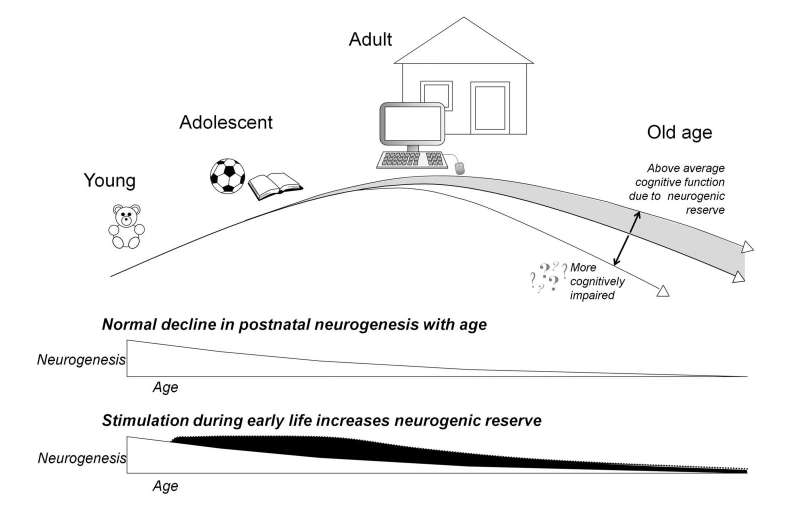Early-life stimulation increases neurogenesis, leading to a reserve pool of cells that can persist into old age and contribute to conserved cognitive function. Credit: Merkely, Ch.M. and Wojtowicz, J.M. Role of Adult Neurogenesis in Learning and Memory. In: "Adult Neurogenesis in the Hippocampus: Health, Psychopathology and Brain Disease". Ed. J. Canales, Academic Press & Elsevier, Chapt, 4, pp.57-73, 2016.
Young rats with access to a running wheel show improved memory later in life and increased activity of neurons generated in adulthood, finds a study published in eNeuro. The results raise the possibility that exercise early in life may help to protect against age-related cognitive decline.
Martin Wojtowicz and colleagues found that six-weeks of voluntary running, beginning at one month of age in rats, was sufficient to induce a long-term effect on learning and memory of a fear response that depends on newly generated neurons in the hippocampus in adulthood. They also found that the activity of the adult-born neurons was enhanced compared to those acquired during development and to those of rats housed in a standard cage without a running wheel.
The findings are consistent with the idea of cognitive reserve, whereby the brain draws on enriching experiences from youth to compensate for functional declines as a result of age or disease. Early life interventions that increase physical activity may therefore help to build up this reserve, potentially delaying the onset of neurodegenerative disorders such as Alzheimer's disease.
More information: Early-Age Running Enhances Activity of Adult-Born Dentate Granule Neurons Following Learning in Rats, eNeuro, DOI: 10.1523/ENEURO.0237-17.2017
Provided by Society for Neuroscience






















